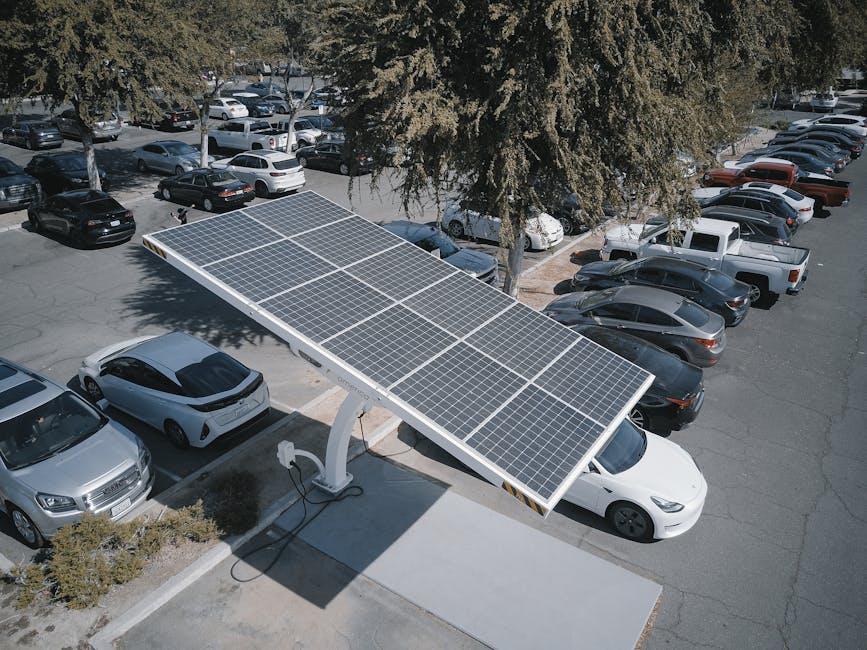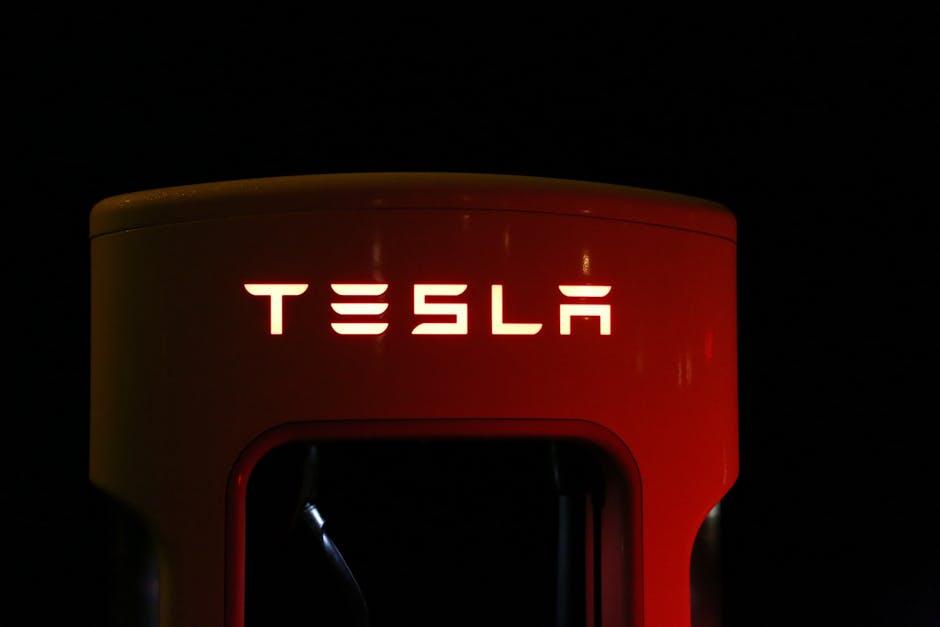Because the hum of engines step by step offers option to the quiet revolution on our roads, the automotive world finds itself at a crossroads. Electrical and hybrid automobiles, as soon as area of interest alternate options, at the moment are entrance and heart within the world push towards sustainable mobility. However navigating this evolving panorama is something however easy. In a time when innovation accelerates with each mile, understanding the nuances, advantages, and challenges of electrical versus hybrid automobiles is important for drivers, policymakers, and business lovers alike. This text embarks on a considerate journey by the shifting terrain of transportation, exploring what lies forward as we steer towards a cleaner, extra environment friendly future.
Desk of Contents
- Understanding the Core Variations Between Electrical and Hybrid Autos
- Evaluating Efficiency Effectivity and Environmental Influence
- Price Concerns and Lengthy-Time period Possession Advantages
- Making the Proper Selection for Your Life-style and Driving Wants
- Key Takeaways

Understanding the Core Variations Between Electrical and Hybrid Autos
Relating to electrical and hybrid automobiles, the elemental distinction lies of their energy sources and operation mechanisms. Electrical automobiles (EVs) run completely on electrical energy saved in massive battery packs, which should be recharged through exterior sources like house chargers or public stations. In distinction, hybrid automobiles mix an inner combustion engine with an electrical motor, providing a dual-source energy system. This mix permits hybrids to change between or concurrently use gasoline and electrical energy, optimizing gasoline effectivity and lengthening driving vary. Understanding this core distinction is essential, particularly as extra customers weigh environmental impression in opposition to sensible comfort.
To visualise these variations clearly, contemplate the important thing traits that differentiate electrical and hybrid automobiles:
- Vitality Supply: EVs rely solely on electrical energy; hybrids use gasoline and electrical energy.
- Emissions: EVs produce zero tailpipe emissions; hybrids have lowered emissions in comparison with typical automobiles.
- Refueling/Charging: EVs require charging stations; hybrids refuel at fuel stations and will have regenerative charging.
- Vary: Hybrids usually provide longer driving ranges because of gasoline backup; EVs are bettering however nonetheless restricted by battery capability.
| Characteristic | Electrical Car | Hybrid Car |
|---|---|---|
| Energy Supply | Electrical Battery Solely | Electrical + Gasoline Engine |
| Refueling Time | 30 minutes to 12 hours (charging) | 2–5 minutes (fuel) |
| Environmental Influence | Zero Tailpipe Emissions | Decrease Emissions than Gasoline Solely |
| Upkeep | Decrease Prices (Fewer Transferring Elements) | Average Prices (Engine + Electrical Motor) |

Evaluating Efficiency Effectivity and Environmental Influence
When evaluating electrical and hybrid automobiles, understanding their efficiency effectivity is essential for making an knowledgeable selection. Electrical automobiles function with near-instant torque supply, resulting in easy acceleration and lowered vitality loss, whereas hybrids stability between combustion and electrical energy, providing prolonged vary however generally sacrificing seamless energy output. In sensible phrases, electrical automobiles (EVs) usually obtain increased miles per gallon equal (MPGe), benefitting from fewer shifting components and fewer vitality wasted on warmth or friction. Nevertheless, hybrids shine in flexibility, particularly in areas missing sturdy charging infrastructure, the place their dual-powertrain ensures fewer vary anxieties and extra constant gasoline financial savings.
Past simply effectivity, the environmental footprint of every car sort unveils layers of complexity. Whereas EVs produce zero tailpipe emissions, the environmental value of battery manufacturing and electrical energy sourcing stays a subject of energetic debate. Hybrids scale back emissions in comparison with conventional gasoline automobiles however nonetheless emit CO2 throughout operation. The next desk highlights key environmental metrics that customers usually contemplate:
| Facet | Electrical Autos | Hybrid Autos |
|---|---|---|
| Tailpipe Emissions | Zero | Lowered however current |
| Battery Manufacturing Influence | Excessive | Average (smaller batteries) |
| Vitality Supply | Electrical grid-dependent | Gasoline + Electrical |
| Finish-of-Life Recycling | Bettering however complicated | Established however much less pressing |
- Vitality Effectivity: EVs convert over 85% {of electrical} vitality into motion, hybrids round 40–50% when combining gasoline and electrical techniques.
- Environmental Commerce-offs: Battery sourcing impacts and electrical energy grid fossil gasoline content material form the precise ecological profit of electrical automobiles.
- Operational Flexibility: Hybrids mitigate vary nervousness and might optimize city vs. freeway driving environments in another way than EVs.

Price Concerns and Lengthy-Time period Possession Advantages
When contemplating the acquisition of a brand new car, understanding each upfront bills and ongoing prices is essential. Electrical automobiles usually include the next preliminary price ticket because of superior battery know-how and cutting-edge options. Nevertheless, they will ship important financial savings over time because of decrease gasoline prices, lowered upkeep necessities, and entry to authorities incentives. Hybrids, whereas usually priced decrease than totally electrical automobiles, strike a stability by providing improved gasoline effectivity with out the necessity for frequent charging infrastructure. Consumers ought to weigh the whole value of possession, slightly than simply sticker value, to see which choice aligns greatest with their monetary objectives.
Past cash saved on the pump, long-term possession advantages play a pivotal position within the decision-making course of. Electrical automobiles boast fewer shifting components, leading to much less put on and tear—and fewer journeys to the mechanic. Hybrids, in the meantime, provide a seamless transition for these not able to commit totally to electrical, offering prolonged vary and suppleness. Key advantages to think about embrace:
- Decrease emissions and environmental impression contributing to cleaner cities
- Lowered dependence on fossil fuels with alternatives for inexperienced vitality charging
- Tax credit and rebates that may offset buy prices
- Enhanced resale worth because of rising demand for sustainable automobiles
| Price Issue | Electrical Vehicles | Hybrid Vehicles |
|---|---|---|
| Preliminary Value | Excessive | Average |
| Gas & Charging | Decrease (electrical energy) | Average (fuel + electrical) |
| Upkeep | Decrease (fewer components) | Average |
| Incentives | Important | Restricted |

Making the Proper Selection for Your Life-style and Driving Wants
Selecting between electrical and hybrid automobiles usually comes all the way down to your day by day routine and environmental priorities. In case your driving entails quick commutes with entry to dependable charging stations, an electrical automotive can provide a easy, emission-free expertise that aligns with a sustainable life-style. Then again, should you ceaselessly take longer journeys or dwell in areas the place charging infrastructure continues to be creating, a hybrid supplies a sensible stability—tapping into gasoline when electrical energy runs low, supplying you with prolonged vary with out the nervousness of discovering a station.
Think about these key points when evaluating which choice matches greatest:
- Charging Comfort: Electrical automobiles require common charging habits – very best should you can set up a house charger or work close to one.
- Journey Frequency and Distance: Hybrids shine for various journey patterns with lesser dependency on charging stops.
- Environmental Influence: Pure electrics promise zero tailpipe emissions, whereas hybrids scale back gasoline use and emissions however nonetheless rely partially on gasoline.
| Issue | Electrical Automobile | Hybrid Automobile |
|---|---|---|
| Vary | 100-350 miles | 400-600 miles |
| Gas Supply | Electrical energy solely | Gasoline + Electrical energy |
| Upkeep | Decrease (fewer shifting components) | Average (combines electrical + combustion) |
| Excellent For | City driving, quick commutes | Longer journeys, combined driving situations |
Key Takeaways
Because the roads of tomorrow unfurl, the selection between electrical and hybrid automobiles is much less about choosing sides and extra about understanding the journey forward. Each applied sciences provide distinct pathways towards a cleaner, extra environment friendly future—every with its personal set of strengths and trade-offs. Navigating this evolving panorama requires curiosity, considerate consideration, and an open thoughts able to embrace change. Whether or not your subsequent experience hums purely on electrical present or blends gasoline with innovation, the shift is simple: a brand new period of driving is on the horizon, inviting us all to play a job in shaping what comes subsequent.



